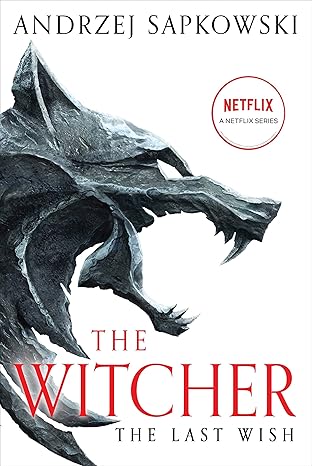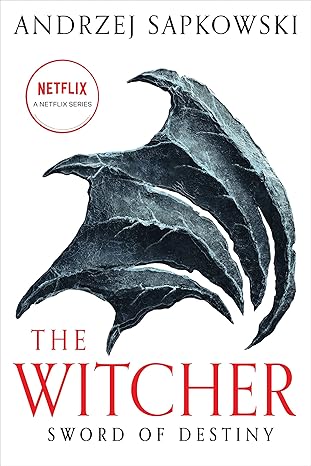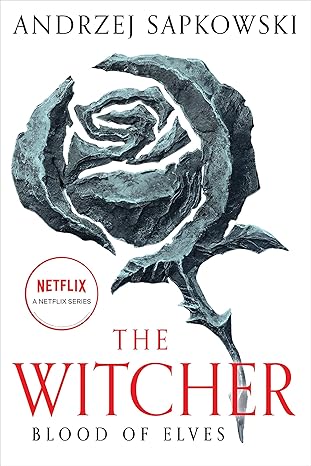
How to Read Andrzej Sapkowski's Books on Do I need to read the books to enjoy the games or show
How to Read Andrzej Sapkowski's Books on "Do I Need to Read the Books to Enjoy the Games or Show"
Estimated Reading Time: 10-12 minutes
Introduction
Andrzej Sapkowski, a Polish author born in 1948, is best known for his influential series of fantasy novels known as "The Witcher." His works have transcended the literary world, inspiring a successful video game franchise and a Netflix series that captivated audiences worldwide. Sapkowski's unique blend of Slavic mythology, rich character development, and philosophical musings create a narrative landscape that is both immersive and thought-provoking.
This guide explores whether reading Sapkowski's books is necessary to enjoy the games or the show. By delving into his notable works—The Last Wish, Sword of Destiny, and Blood of Elves—we'll uncover the themes and insights that enrich the experience of his adaptations, while also considering the standalone enjoyment of the games and the series.
Why Andrzej Sapkowski's Perspective Matters
Sapkowski's approach to storytelling is distinctive for its moral complexity and deep character exploration. Unlike many fantasy authors who focus on epic battles and clear-cut good versus evil, Sapkowski presents a world where moral ambiguity reigns. His characters are flawed, their motivations multifaceted, and the consequences of their actions often unpredictable. This nuanced perspective not only enriches the narrative but also invites readers and viewers to reflect on their own values and choices.
Sapkowski's contributions to the fantasy genre are significant; he has redefined the archetype of the hero and the role of destiny in storytelling. His works challenge readers to consider the nature of humanity and the impact of choices, making them relevant beyond the realm of fantasy.
Overview of Recommended Books
The Last Wish
The Last Wish serves as the introduction to Geralt of Rivia, a monster hunter navigating a world filled with political intrigue and supernatural threats. The book is structured as a series of interconnected short stories, each exploring different facets of Geralt's character and the moral dilemmas he faces.
Main Themes and Arguments:
- Fate vs. Free Will: The tension between destiny and personal choice is a recurring theme, illustrated through Geralt's encounters and the choices he must make.
- The Nature of Humanity: Sapkowski blurs the lines between monsters and humans, prompting readers to question what it truly means to be "human."
- Love and Sacrifice: The stories delve into the complexities of love, often highlighting the sacrifices characters must make for those they care about.
Key Insights:
- The importance of understanding one's own fate while acknowledging the influence of external forces.
- The necessity of empathy in a world filled with conflict.
- The idea that true monstrosity often lies within human actions rather than in the creatures themselves.
Why Read This Book: The Last Wish is essential for understanding the foundational elements of Geralt's character and the world he inhabits. Readers who appreciate rich storytelling and moral complexity will find this book particularly rewarding. It sets the stage for the themes explored in both the games and the series, making it a valuable read for fans and newcomers alike.
Sword of Destiny
Following The Last Wish, Sword of Destiny further develops the narrative and themes introduced in the first book. It continues to explore Geralt's relationships and the consequences of his choices, particularly regarding love and friendship.
Main Themes and Arguments:
- The Duality of Destiny: The book emphasizes the dual nature of destiny, showcasing how it can be both a guiding force and a source of conflict.
- The Power of Choices: Geralt's decisions have far-reaching implications, highlighting the weight of personal responsibility.
- Interpersonal Relationships: The stories delve into the complexities of love, loyalty, and betrayal, emphasizing the emotional stakes involved.
Key Insights:
- The idea that love can be both a source of strength and vulnerability.
- The recognition that choices define one's path, regardless of predetermined fate.
- The exploration of how relationships shape identity and moral choices.
Why Read This Book: Sword of Destiny is crucial for understanding the emotional depth of Geralt's character and his relationships with others. Readers interested in character-driven narratives and the exploration of love and sacrifice will find this book particularly engaging. It complements the themes of the adaptations, enhancing the overall experience.
Blood of Elves
Blood of Elves marks the beginning of the main saga, transitioning from short stories to a more structured narrative. This novel introduces new characters and expands on the political landscape of Sapkowski's world, focusing on the training of Ciri, a young girl with a mysterious destiny.
Main Themes and Arguments:
- The Burden of Destiny: Ciri's journey illustrates the heavy burden of fate and the expectations placed upon her.
- The Nature of Power: The novel examines the complexities of power dynamics, both personal and political, within the context of war and conflict.
- Identity and Growth: Ciri's development as a character highlights the importance of personal growth and self-discovery.
Key Insights:
- The significance of mentorship and guidance in shaping one's destiny.
- The exploration of how trauma and past experiences influence identity.
- The idea that true strength comes from understanding oneself and one's choices.
Why Read This Book: Blood of Elves is essential for grasping the overarching narrative of the series and the development of key characters. Readers who enjoy epic fantasy with intricate world-building and character arcs will find this book particularly satisfying. It lays the groundwork for the events that unfold in both the games and the series.
How These Books Complement Each Other
These three works build upon each other, creating a rich tapestry of themes and character development. The Last Wish and Sword of Destiny establish the moral complexities of Geralt's world, while Blood of Elves expands the narrative scope, introducing new characters and deeper political intrigue. Together, they provide a comprehensive understanding of the themes of destiny, choice, and identity that permeate Sapkowski's universe.
Reading them in sequence allows for a deeper appreciation of character motivations and the consequences of their actions, enriching the experience of the adaptations.
Who Would Benefit from Reading These Books
- Students and Academics: Those studying literature, philosophy, or cultural studies will find valuable insights into moral complexity and character development.
- General Readers: Fans of fantasy and those interested in character-driven narratives will appreciate the depth and richness of Sapkowski's storytelling.
- Professionals Seeking Practical Wisdom: The themes of choice and responsibility resonate with anyone looking for personal growth and self-improvement.
- Fans of the Games and Series: Readers who enjoy the adaptations will gain a deeper understanding of the characters and themes, enhancing their overall experience.
Recommended Reading Order
- Start with: The Last Wish - This book introduces Geralt and the world, providing essential context for the entire series.
- Continue with: Sword of Destiny - This book deepens the exploration of relationships and moral dilemmas, building on the foundation laid in the first book.
- Advanced reading: Blood of Elves - This novel expands the narrative scope, setting the stage for the main saga and introducing new characters.
Tips for Getting the Most Out of Each Book:
- Take notes on character motivations and key themes as you read.
- Reflect on how the moral dilemmas presented relate to contemporary issues.
- Consider the connections between the stories and the adaptations, noting differences and similarities.
Conclusion
Andrzej Sapkowski's contributions to fantasy literature are profound, offering readers a rich exploration of themes that resonate with the human experience. While the games and the Netflix series provide an engaging entry point into his world, reading the books deepens the understanding of the characters and moral complexities that define his narrative.
I encourage you to explore these works, as they not only entertain but also challenge us to reflect on our own choices and values. Dive into Sapkowski's universe, and discover the timeless relevance of his insights.
Tags: #Andrzej Sapkowski #Do I need to read the books to enjoy the games or show #Philosophy #ReadingGuide #ClassicLiterature #Wisdom
Featured Books

The Last Wish
by Andrzej Sapkowski
Published: 1993
A collection of short stories that introduce Geralt of Rivia and the world of The Witcher.

Sword of Destiny
by Andrzej Sapkowski
Published: 1992
More short stories that expand on Geralt’s relationships and the destiny of a child.

Blood of Elves
by Andrzej Sapkowski
Published: 1994
The first novel in the saga, following Ciri’s training and the beginning of a war.